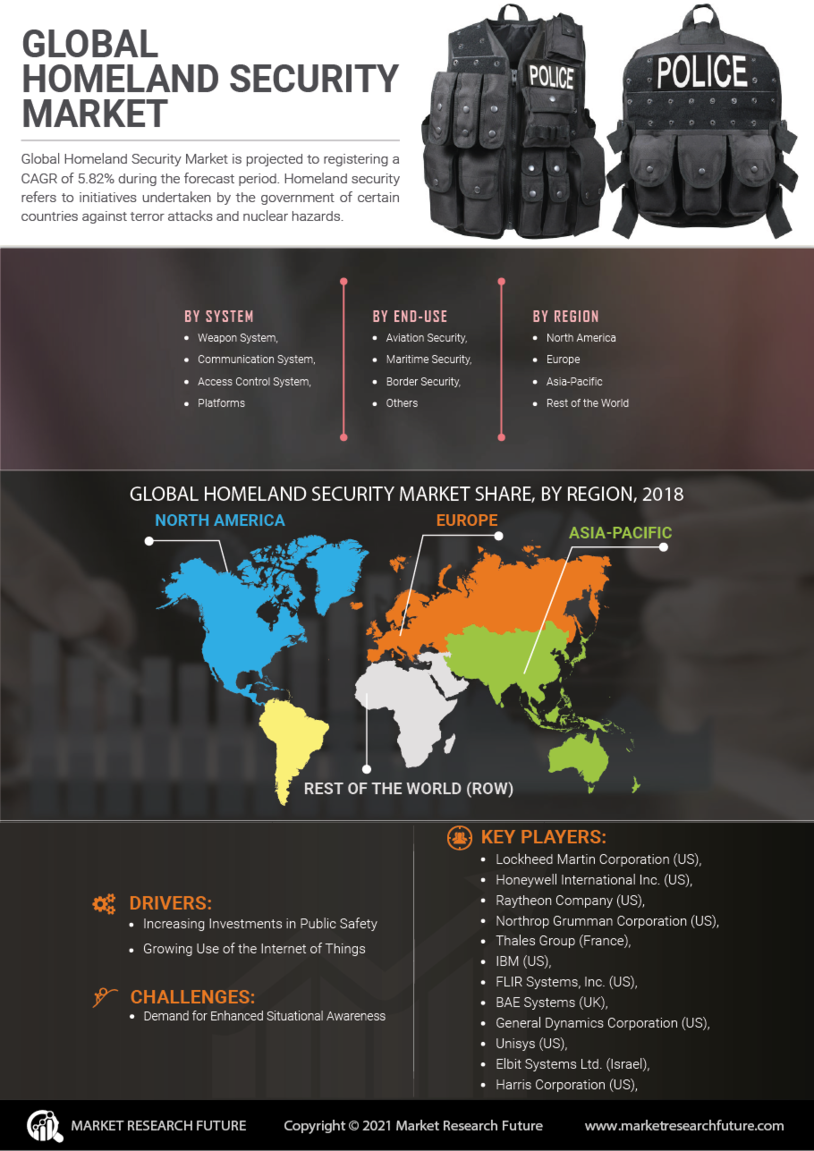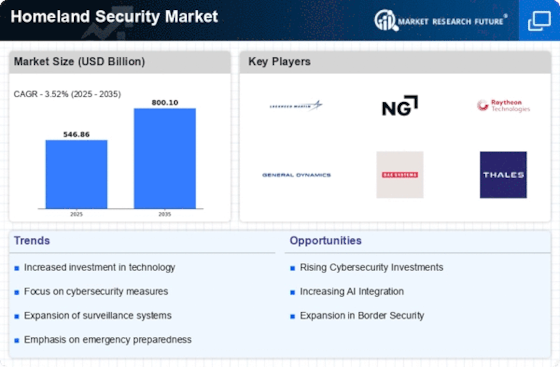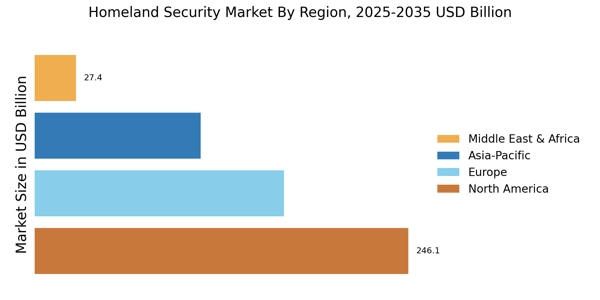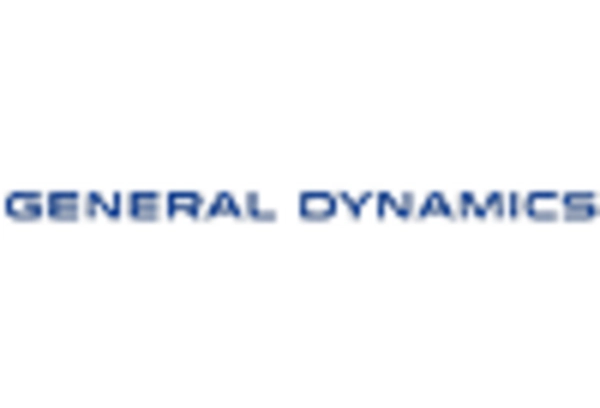Technological Advancements
Rapid technological advancements are reshaping the Homeland Security Market. Innovations in artificial intelligence, machine learning, and big data analytics are being integrated into security systems, enhancing threat detection and response capabilities. For instance, the adoption of biometric systems and facial recognition technologies has gained traction, improving identification processes. The market is projected to reach a valuation of over 500 billion by 2027, driven by these technological enhancements. As security challenges become more complex, the demand for sophisticated solutions that leverage cutting-edge technology is likely to increase.
Increased Terrorism Threats
The persistent threat of terrorism continues to drive the Homeland Security Market. Governments are compelled to enhance their security measures in response to evolving terrorist tactics. This has led to increased investments in surveillance technologies, intelligence sharing, and counter-terrorism initiatives. In recent years, the market has seen a surge in demand for advanced security systems, with projections indicating a growth rate of approximately 5.5% annually. The need for comprehensive security solutions is underscored by the rising number of incidents, prompting nations to allocate substantial budgets towards homeland security.
International Collaboration
International collaboration among nations is emerging as a crucial driver in the Homeland Security Market. Countries are recognizing the importance of sharing intelligence and resources to combat transnational threats. This collaboration has led to joint training exercises, information sharing agreements, and the development of multinational security frameworks. The market is likely to benefit from increased funding for collaborative initiatives, with projections indicating a growth rate of 5% annually. As nations work together to address common security challenges, the demand for integrated security solutions is expected to rise.
Public Awareness and Preparedness
Public awareness regarding security threats has heightened, influencing the Homeland Security Market. Citizens are increasingly concerned about their safety, prompting governments to implement educational programs and preparedness initiatives. This growing awareness has led to increased funding for community-based security programs and emergency response training. As a result, the market for public safety solutions is expected to expand, with a projected growth rate of 4.5% over the next five years. The emphasis on preparedness is likely to drive demand for training and simulation technologies.
Regulatory Compliance and Standards
The need for regulatory compliance is a significant driver in the Homeland Security Market. Governments are establishing stringent regulations to ensure the safety and security of their citizens. This has resulted in increased demand for compliance solutions, including risk assessment tools and security audits. Organizations are investing in systems that align with national and international standards, which is expected to propel market growth. The market for compliance-related services is anticipated to grow at a rate of 6% annually, reflecting the importance of adhering to evolving security regulations.

















